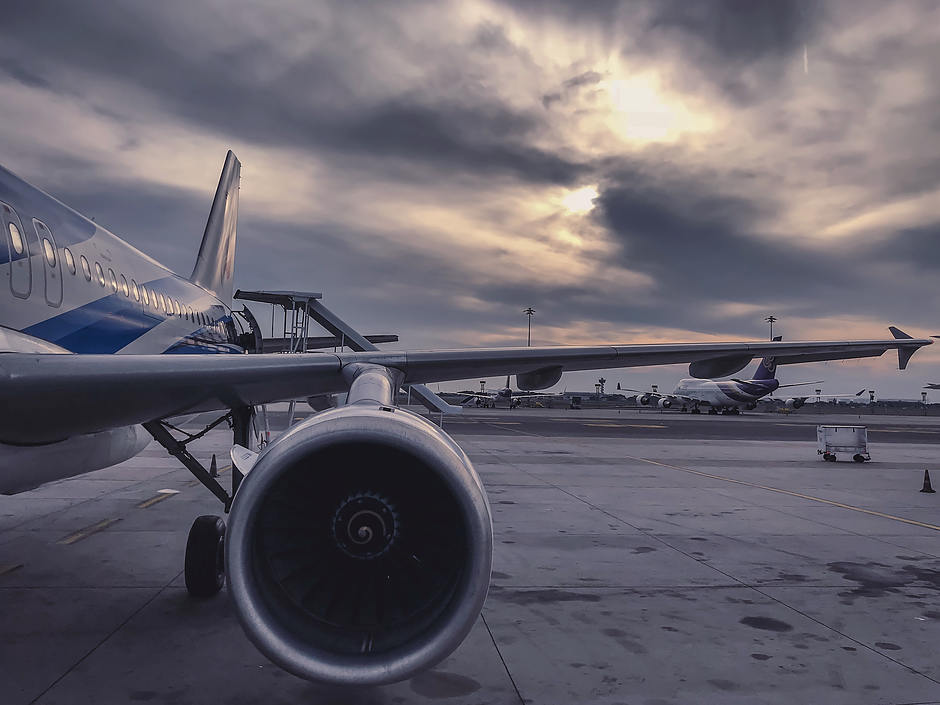EasyJet share price slips, after posting another £1bn full year loss

Original content: EasyJet share price slips, after posting another £1bn full year loss
As far as airlines are concerned this year has been a year which promised much but failed to deliver, with easyJet share price now negative for the year, as the early optimism of the spring has given way to a gradual decline towards levels last seen in early 2020.
It should be noted that while the shares are lower today, its not because of the losses announced today, as these were expected, but is largely down to the comments by Moderna CEO Stephane Bancel, who was extremely downbeat on a quick turnaround on the vaccine front when it comes to modifications to deal with the Omicron variant.
The hope at the start of 2021 was that vaccines would herald the return of some form of normal for a sector that has borne the brunt of pandemic restrictions.
This has been much harder to achieve than was thought to be the case with the airline struggling to meet its quarterly guidance as the year went on, with the first three quarters seeing three successive quarters of capacity below 20%.
Since May the shares have struggled as the early optimism of H1 which saw the shares rise above 900p, has slowly evaporated, and resulted in the company having to do another rights issue back in September of £1.2bn, which helped reduce its debt to £900m, from £2bn.
Today’s full year numbers have seen reported losses before tax come in at just over £1bn, following on from last year's £1.27bn, although losses in the second half of this year have been lower than the £701m posted in H1.
Total revenue for 2021 came in at £1.46bn, a fall of 52% from 2020, largely due to H1 2020 not seeing a material covid impact.
Full year capacity for this year was at 28.2% of 2019 levels, flying 20.4m passengers compared to 2020, which saw 48.1m passengers flown.
The airline has had to take a surgical approach to costs, cutting them by 29% to £2.23bn, from £3.1bn, while reducing its debt levels to £910m, from £2bn, largely as a result of the rights issue in September.
In the last 18 months the airline has raised over £5.5bn to bolster its finances since the start of the pandemic. It has also gone down the route of selling and leasing back 43 of its aircraft to raise extra cash, though it appears to have decided not to double down in this direction for the time being. easyJet is still burning through cash on a weekly basis to the tune of £36m on average, with access to £4.4bn in liquidity, comprising of mostly cash and equivalents.
The airline has been able to add 25 aircraft to its operational fleet, as capacity has started to increase, with slots added at Gatwick, Porto, Lisbon and Milan’s Linate airports. The airline is also 55% hedged for fuel at just below $500 per metric tonne.
For the upcoming quarter easyJet has said it has seen a softening of demand for Q1 22, probably due to recent events around Delta and latterly Omicron, although bookings for H2 are still fairly resilient, with an expectation that by Q4 22 capacity will return to pre pandemic levels. It is important to note however easyJet had a similar expectation a year ago, and we subsequently know how that has turned out.
easyJet said it still expects to fly 70% of capacity in Q2, although Q1 capacity has been adjusted down to 65% from the 70% the airline expected a couple of months ago. This modest downgrade is understandable, given the problems being caused by Delta in Europe currently, and that’s even before the new restrictions brought about by Omicron.
Author

Michael Hewson MSTA CFTe
Independent Analyst
Award winning technical analyst, trader and market commentator. In my many years in the business I’ve been passionate about delivering education to retail traders, as well as other financial professionals. Visit my Substack here.

















